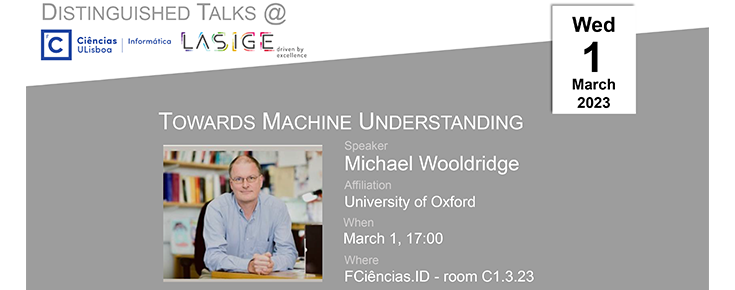
Por Michael Wooldridge (University of Oxford).
Recent developments in Artificial Intelligence (AI) are startling - at least at first sight. We now have AI systems that appear to be able to sustain meaningful conversations, capable of answering complex questions about an impressively broad range of topics. Machines that can really pass the Turing's famous test for machine intelligence now seem plausible within the near future. So to what extent are these impressive new tools really intelligent? To what extent can we say they understand in the same way that we do? And where is this technology heading?
Short Bio: Michael Wooldridge is a Professor of Computer Science at the University of Oxford, and Director of Foundational AI Research at the Alan Turing Institute, London (the UK’s national centre for AI & data science). Before joining Oxford in 2012, he was for 12 years a Professor at the University of Liverpool, where he was first Head of Department of Computer Science, and then Head of School (Dean) of Electrical and Electronic Engineering and Computer Science. Prof. Wooldridge gained his PhD from the University of Manchester in 1992.
Prof. Wooldridge has received international awards for both research and teaching. In 2020 he received the Lovelace Medal from the British Computer Society (the UK’s top award for a computer scientist), and received the ACM Autonomous Agents Research Award in 2006 (the award is made annually by ACM to an individual whose research in the area of autonomous agents and multi-agent systems over the previous five years is judged to have been particularly influential). He received the Outstanding Educator Award from the Association for Advancement of AI (AAAI) in 2021. He is an ACM Fellow (2015), a AAAI Fellow (2008), a EurAI Fellow (2007), and a member of Academia Europaea (2015). He is Co-Editor-in-Chief of the journal “Artificial Intelligence”, and will be conference chair for the AAAI-24 conference. He has published 9 books, three of which have been translated into a total of seven different languages. In addition he has published more than 400 scientific articles.













